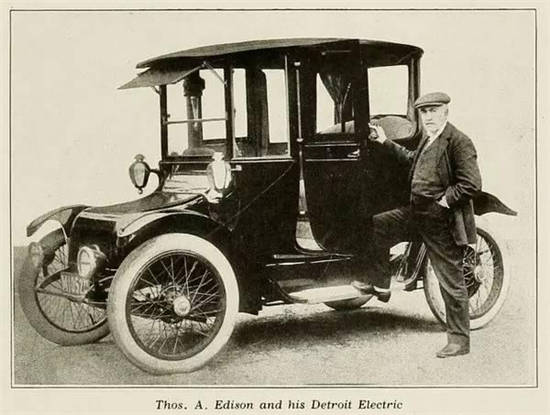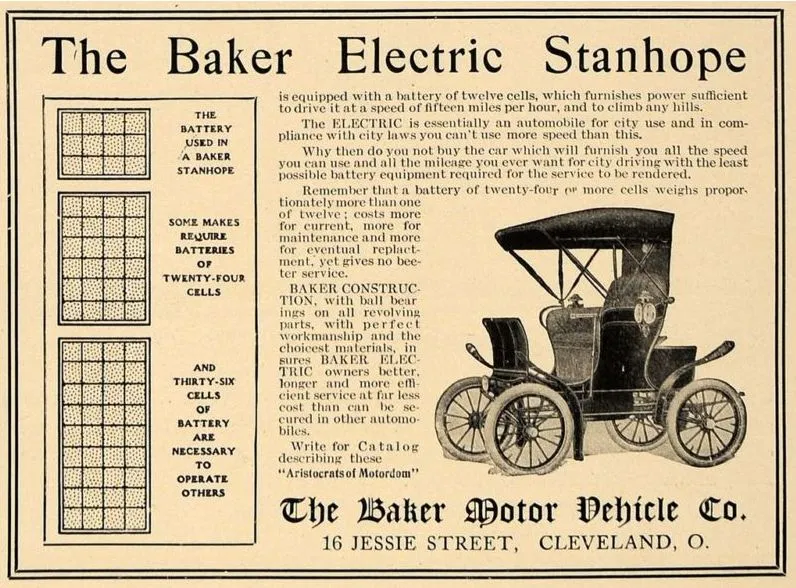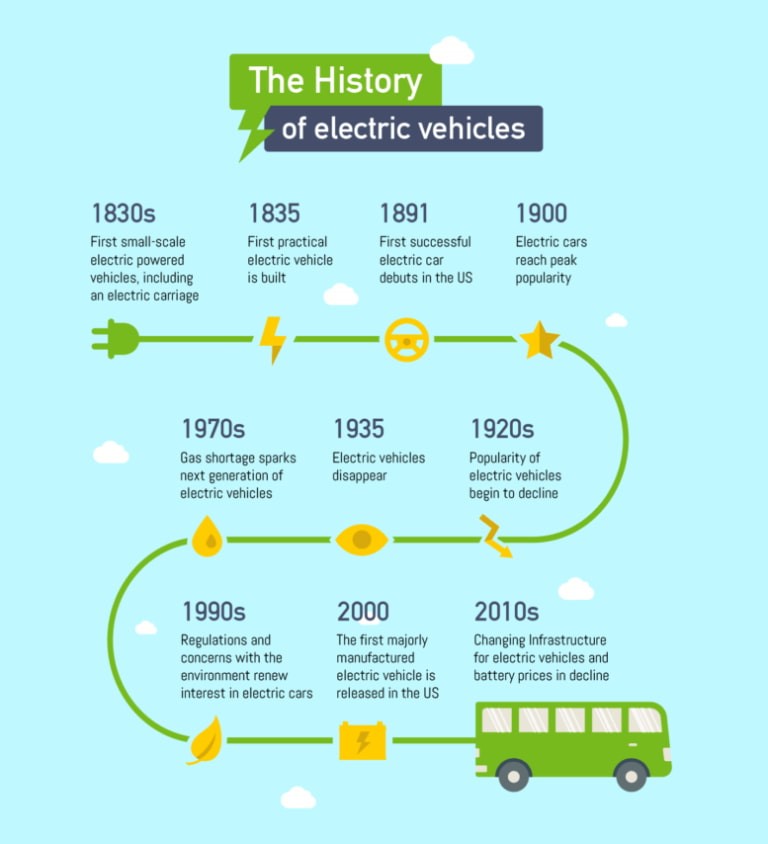|
|||||||||||||||||||||||
|
|||||||||||||||||||||||
 125
125
 2024-02-18
2024-02-18
In the era dominated by environmental protection and sustainable development, Electric Vehicles (EVs) have emerged as a central focus in the global automotive industry and transportation sector. Tracing back through history, we find that the story of electric vehicles is far more protracted than many people realize, representing not only the power of technological innovation but also the epitome of humanity's relentless exploration and optimization of energy utilization.

Early Origins and Development (1830s-1920s) The birth of electric vehicles can be traced back to the 1830s when inventors began experimenting with applying electricity to modes of transport. In 1834, Robert Anderson crafted the world's earliest electric carriage, marking the inception of electric vehicles. Subsequently, in 1859, French scientist Gaston Planté invented the lead-acid battery, a landmark advancement that provided a feasible power source for electric vehicles.

By the end of the 19th century, with improvements in battery technology and urbanization demands, electric vehicles entered a period of robust growth in developed nations such as the United States, Britain, and France. Numerous manufacturers like Morris and Salom companies produced a series of electric buses and trucks, even pioneering a replaceable battery service model, making electric vehicles a competitive choice for transportation at the time.
Mid-Century Decline and the Rise of the Internal Combustion Engine Era (1920s-1990s) However, with the development of the oil industry and advancements in internal combustion engine technology, particularly the mass production of the Ford Model T, electric vehicles lost their market edge due to short driving ranges and inadequate charging infrastructure during the early 20th century. Gasoline-powered cars took over globally with their higher energy density and convenient refueling networks.
Environmental Awareness Revival and the Resurgence of Electric Vehicles (1990s-Present) Entering the 1990s, amidst mounting environmental concerns and increased worries about reliance on fossil fuels, electric vehicles regained significant attention. Governments in Japan and European and American countries began implementing policies to drive the research and application of electric vehicles. Emerging companies like Tesla spearheaded an electric vehicle revolution during this period.

The Turning Points in the Evolution of Electric Vehicles
Turning Points:
1,The Oil Crisis: The global energy security concerns arose unprecedented attention during the oil crisis of the 1970s. As electric vehicles do not rely on petroleum, this event became a pivotal moment that brought electric vehicles back into the spotlight. Many countries began to realize the crucial importance of reducing their dependence on oil for national energy security, thus initiating strong support for the research and promotion of electric vehicles.
2,The Rise of Tesla: In the early 21st century, the emergence of Tesla Inc. and the success of its products brought about a significant transformation to the electric vehicle market. Tesla's electric vehicles not only possess high performance but also offer long-range capabilities and fast charging, propelling electric vehicles from a mere concept into mainstream adoption.
Significant Technological Advancements:
1,Battery Technology:
⊙ Lithium-ion Batteries: Compared to traditional lead-acid batteries, lithium-ion batteries offer higher energy density, lower self-discharge rates, and longer lifespan, greatly driving the development of electric vehicles.
⊙ Solid-State Batteries: The ongoing research and development of solid-state batteries are expected to provide higher energy density and faster charging speeds, offering a bright prospect for the future development of electric vehicles.
2,Charging Technology:
⊙ Fast Charging Technology: Enabling electric vehicles to be fully charged in a matter of minutes greatly enhances the convenience of electric vehicles.
⊙ Wireless Charging Technology: Although still in its early stages, wireless charging technology brings forth more possibilities for electric vehicles, such as wirelessly charging in parking lots without the need for physical connections.
Policy Influences:
1,Subsidy Policies: Many countries have implemented vehicle purchase subsidies to encourage the adoption of electric vehicles. For instance, the Chinese government has previously provided substantial subsidies to consumers purchasing electric vehicles, significantly promoting their widespread adoption in China.
2,Ban on Internal Combustion Engine Vehicles: In response to climate change and carbon emissions reduction, some countries like Norway and the Netherlands have proposed timelines to ban the sale of internal combustion engine vehicles, further driving the global adoption of electric vehicles.
3,Infrastructure Development: To support the development of electric vehicles, many countries are heavily investing in building charging infrastructure, such as charging poles and stations. These well-established infrastructures lay a solid foundation for the widespread adoption of electric vehicles.
In conclusion, the evolution of electric vehicles is marked by turning points, technological advancements, and policy influences. With continuous technological progress and ongoing policy support, the future development of electric vehicles holds even greater promise.
Technological Breakthroughs and Future Outlook Modern electric vehicles have benefited greatly from major breakthroughs in lithium-ion battery technology, resulting in substantial increases in driving range and enhanced fast-charging capabilities. Additionally, intelligent driving technologies, internet-connected car features, and zero-emission advantages mean that electric vehicles are no longer mere modes of transport but integral components of future smart cities. Governments worldwide and major automakers have announced plans to phase out gasoline-powered vehicles over the coming years, shifting their focus to the full-scale development of electric vehicles and associated infrastructure.
In summary, the development journey of electric vehicles constitutes a sweeping narrative of technological evolution and an indispensable part of human society's response to environmental challenges and its pursuit of sustainable development. With continuous technological innovation, we can foresee an upcoming green mobility era dominated by electric vehicles.
|